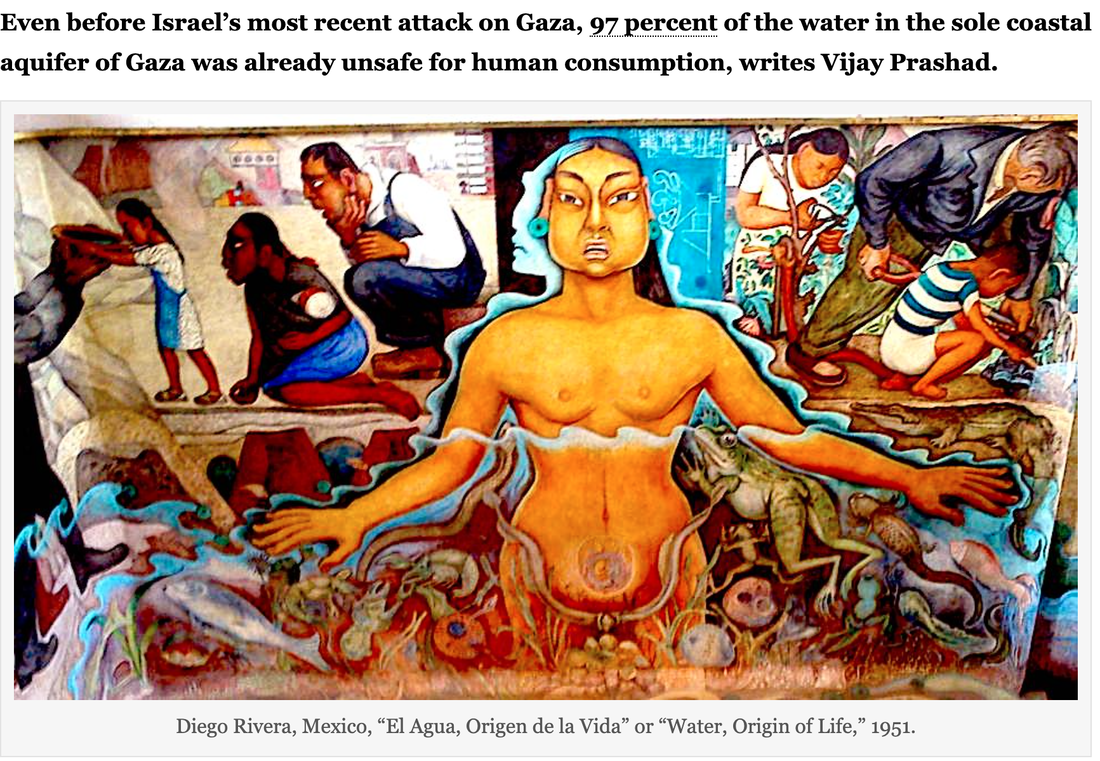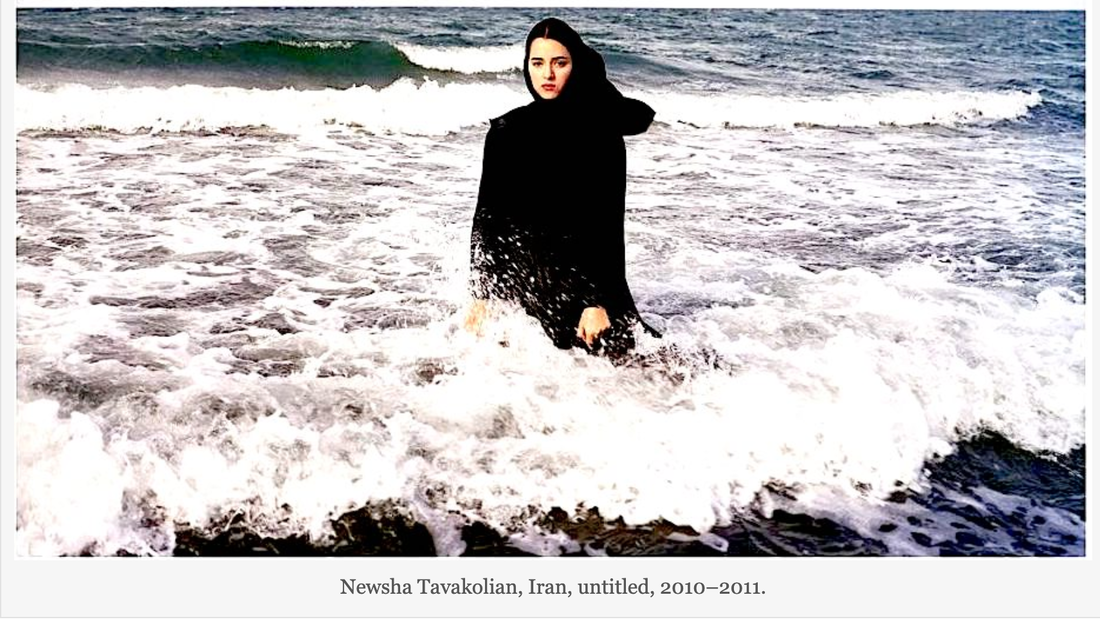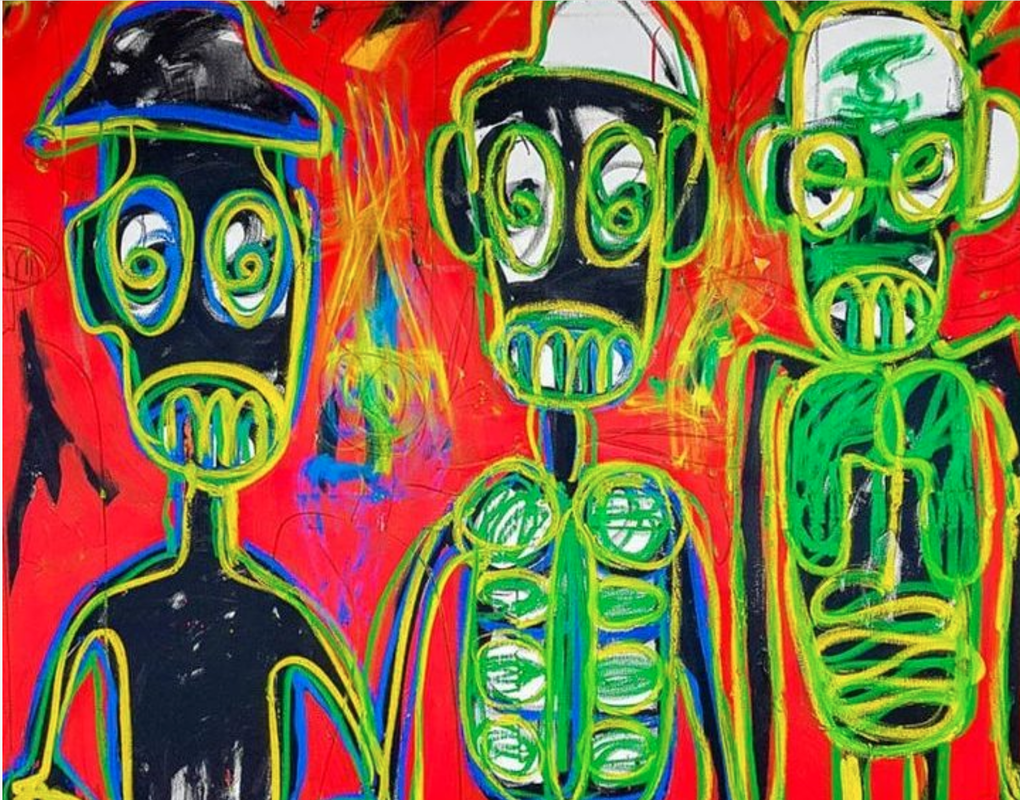|
By November 2023, it was already clear that the Israeli government had begun to deny Palestinians in Gaza access to water. “Every hour that passes with Israel preventing the provision of safe drinking water in the Gaza strip, in brazen breach of international law, puts Gazans at risk of dying of thirst and diseases related to the lack of safe drinking water’, said Pedro Arrojo-Agudo, U.N. special rapporteur on the human rights to safe drinking water and sanitation. “Israel,” he noted, “must stop using water as a weapon of war.” Before Israel’s most recent attack on Gaza, 97 percent of the water in Gaza’s only coastal aquifer was already unsafe for human consumption based on World Health Organisation standards. Over the course of its many attacks, Israel has all but destroyed Gaza’s water purification system and prevented the entry of materials and chemicals needed for repair. In early October 2023, Israeli officials indicated that they would use their control over Gaza’s water systems as a means to perpetrate a genocide. As Israeli Major General Ghassan Alian, the head of the Coordination of Government Activities in the Territories (COGAT), said on 10 October, “Human beasts are dealt with accordingly. Israel has imposed a total blockade on Gaza. No electricity, no water, just damage. You wanted hell, you will get hell.” On March 19, U.N. Humanitarian Coordinator for Palestine Jamie McGoldrick noted that Gaza needed “spare parts for water and sanitation systems” as well as “chemicals to treat water,” since the “lack of these critical items is one of the key drivers of the malnutrition crisis.” “Malnutrition crisis” is one way to talk about a famine. Faeq Hassan, Iraq, “The Water Carriers,” 1957. The assault on Gaza – whose entire population is “currently facing high levels of acute food insecurity,” according to Oxfam and the Integrated Food Security Phase Classification – has sharpened the contradictions that strike the world’s people with force. A U.N. report released on World Water Day (March 22) shows that, as of 2022, 2.2 billion people have no access to safely managed drinking water, that 4 in 5 people in rural areas lack basic drinking water, and that 3.5 billion people do not have sanitation systems. As a consequence, every day, over a thousand children under the age of 5 die from diseases linked to inadequate water, sanitation, and hygiene. These children are among the 1.4 million people who die every year due to these deficiencies. The U.N. report notes that, since women and girls are the primary collectors of water, they spend more of their time finding water when water systems deteriorate due to inadequate or non-existent infrastructure or droughts exacerbated by climate change. This has resulted in higher dropout rates for girls in school. A 2023 study by U.N. Women describes the perils of the water crisis for women and girls: “Inequalities in access to safe drinking water and sanitation do not affect everyone equally. The greater need for privacy during menstruation, for example, means women and girls and other people who menstruate may access shared sanitation facilities less frequently than people who do not, which increases the likelihood of urinary and reproductive tract infections. Where safe and secure facilities are not available, choices to use facilities are often limited to dawn and dusk, which exposes at-risk groups to violence.” The lack of access to public toilets is by itself a serious danger to women in cities across the world, such as Dhaka, Bangladesh, where there is one public toilet for every 200,000 people. Access to drinking water is being further constricted by the climate catastrophe. For instance, a warming ocean means glacier melt, which lifts the sea levels and allows salt water to contaminate underground aquifers more easily. Meanwhile, with less snowfall, there is less water in reservoirs, which means less water to drink and use for agriculture. Already, as the U.N. Water report shows, we are seeing increased droughts that now impact at least 1.4 billion people directly. According to the United Nations, half of the world’s population experiences severe water scarcity for at least part of the year, while one quarter faces “extremely high” levels of water stress. “Climate change is projected to increase the frequency and severity of these phenomena, with acute risks for social stability,” the U.N. notes. The issue of social stability is key, since droughts have been forcing tens of millions of people into flight and starvation. Aboudia, Côte d’Ivoire, “Les trois amis II” or “The Three Friends II,” 2018. Climate change is certainly a major driver of the water crisis, but so is the rules-based international order. Capitalist governments must not be allowed to point to an ahistorical notion of climate change as an excuse to shirk their responsibility in creating the water crisis. For instance, over the past several decades, governments across the world have neglected to upgrade wastewater treatment facilities. Consequently, 42 percent of household wastewater is not treated properly, which damages ecosystems and aquifers. Even more damning is the fact that only 11 percent of domestic and industrial wastewater is being reused. Increased investment in wastewater treatment would reduce the amount of pollution that enters water sources and allow for better harnessing of the freshwater available to us on the planet. There are several sensible policies that could be adopted to immediately address the water crisis, such as those proposed by U.N. Water to protect coastal mangroves and wetlands; harvest rainwater; reuse wastewater; and protect groundwater. But these are precisely the kinds of policies that are opposed by capitalist firms, whose profit line is improved by the destruction of nature. Ibrahim Hussein, (Malaysia, “The Game,” 1964. In March 2018, we launched our second dossier, “Cities Without Water.” It is worthwhile to reflect on what we showed then, six years ago: “The Intergovernmental Panel on Climate Change’s Technical Paper VI (IPCC, June 2008) is on climate change and water. The scientific consensus in this document is that the changes in weather patterns — induced by carbon-intensive capitalism — have a negative effect on the water cycle. In other words, watering golf courses is more important than providing piped water to the thousand of children under the age of five who die every day due to water deprivation. Those are the values of the capitalist system. AuthorVijay Prashad is an Indian historian, editor and journalist. He is a writing fellow and chief correspondent at Globetrotter. He is an editor of LeftWord Books and the director of Tricontinental: Institute for Social Research. He is a senior non-resident fellow at Chongyang Institute for Financial Studies, Renmin University of China. He has written more than 20 books, including The Darker Nations and The Poorer Nations. His latest books are Struggle Makes Us Human: Learning from Movements for Socialism and, with Noam Chomsky, The Withdrawal: Iraq, Libya, Afghanistan and the Fragility of U.S. Power. This article was produced by Consortium News. Archives April 2024
0 Comments
Leave a Reply. |
Details
Archives
July 2024
Categories
All
|





 RSS Feed
RSS Feed